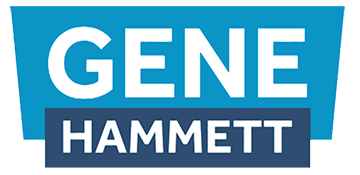In this episode, I sit down with Eric McGrath, CEO of Facial Lounge Group, to explore how building a Culture of Psychological Safety can power high-growth companies. Ranked No. 2,345 on the 2024 Inc. 5000 list, Facial Lounge Group has transformed its leadership and performance by prioritizing an environment where team members feel safe to take risks and voice ideas. Eric shares how cultivating a Culture of Psychological Safety leads to better collaboration, innovation, and resilience within fast-growing teams. We dive into practical strategies leaders can use to reinforce this culture while scaling operations. Tune in to discover how a Culture of Psychological Safety can fuel sustainable growth and unlock your organization’s full potential.
- Introduction to Psychological Safety
- Google’s Project Aristotle
- The Role of Employees in Safety
- Real Leadership and Feedback
- Self-Management in Leadership
- Conclusion and Insights
Building Growth Through Psychological Safety: Insights from Facial Lounge CEO Eric McGrath
Eric McGrath, CEO and co-founder of Facial Lounge Group, shares his insights on the necessity and implementation of psychological safety within organizations. He begins by defining psychological safety in layman’s terms: it revolves around feeling secure enough to voice opinions, particularly in interactions with superiors. McGrath emphasizes that this is crucial when disagreements arise, as it allows for healthy discussions that foster collaboration instead of conflict. He points out the importance of such an environment in building a resilient organizational culture that enhances productivity and performance. The conversation, facilitated by host Gene Hammett, dives into McGrath’s experience with Facial Lounge, a business that has seen substantial growth, increasing from a couple of hundred thousand to about five million in revenue. This growth, McGrath explains, is rooted in effective operational strategies and a strong emphasis on establishing psychological safety among team members. He recounts his partnership journey with Amber Johnson, an esthetician, and how identifying and streamlining operational processes significantly contributed to their success.
The Power of Psychological Safety: Eric McGrath on Leadership, Trust, and Team Performance
McGrath also discusses Google’s Project Aristotle, a pivotal study that sought to understand what makes teams thrive. Through extensive research, the study identified psychological safety as the most vital component for high-performing teams. He notes that fostering psychological safety required leaders to exhibit good communication skills, genuine curiosity, and the willingness to encourage open dialogue among team members. McGrath highlights the challenges that arise when leaders are insecure or overly ego-centric, suggesting that effective leadership necessitates a balance of care, accountability, and openness to feedback. Gene Hammett prompts McGrath to elaborate on potential barriers to psychological safety. McGrath identifies the absence of trust and effective communication as significant hurdles. He notes that leaders who prioritize their own agendas over collaborative discussions risk losing employee engagement and the benefits of diverse perspectives. McGrath illustrates this with an analogy of a workplace where psychological safety is compromised due to a momentary lapse in a leader’s demeanor or response, which can lead to long-term disengagement among employees.
Empowered Voices: Eric McGrath on Shared Responsibility and Emotional Intelligence in Cultivating Psychological Safety
The discussion then transitions to the role of employees in cultivating psychological safety. McGrath acknowledges that while leaders must create the right environment, employees also need to take initiative, often requiring a culture shift where individuals feel empowered to share feedback. He recounts challenges faced by his team, particularly with estheticians, who may struggle to voice their thoughts due to their inherent tendencies toward more reserved communication styles. Encouraging them to share openly is an essential part of the culture-building process at Facial Lounge. McGrath describes how meetings at Facial Lounge are structured to ensure that all voices are heard. They utilize a framework called EOS, which includes weekly meetings focused on problem-solving that prioritize healthy, respectful conversations. He explains that if discussions begin to become unproductive or contentious, team members are empowered to pause the meeting and recalibrate the conversation, which helps maintain a collegial atmosphere. Throughout the interview, McGrath emphasizes the importance of consistent leadership and emotional intelligence. He offers insights into how leadership triggers can affect team dynamics. Leaders who exhibit rigidity or close off dialogue create an oppressive environment that stifles creativity and input from employees. He underscores that effective leadership is not about authority but the ability to listen, engage, and invite discussions that can lead to better outcomes.
Sustaining Psychological Safety: Eric McGrath on Growth, Accountability, and Culture in Leadership
The final segments of the conversation revolve around the reciprocal nature of psychological safety. McGrath argues that fostering this culture is an ongoing journey for leaders and employees alike. Setting clear expectations and creating a safe space for feedback and learning from mistakes are critical to overcoming barriers to psychological safety. Ultimately, he highlights a growth-minded approach that facilitates continuous improvement and fortifies the capacities of both leaders and employees to engage in constructive dialogue. In summary, the conversation provides a comprehensive exploration of psychological safety in the workplace, detailing how it can be cultivated through thoughtful leadership, consistent practices, and a culture of openness and accountability. McGrath’s insights serve as a valuable resource for leaders aiming to enhance their organizational culture, drive performance, and ensure their teams are empowered to thrive.



